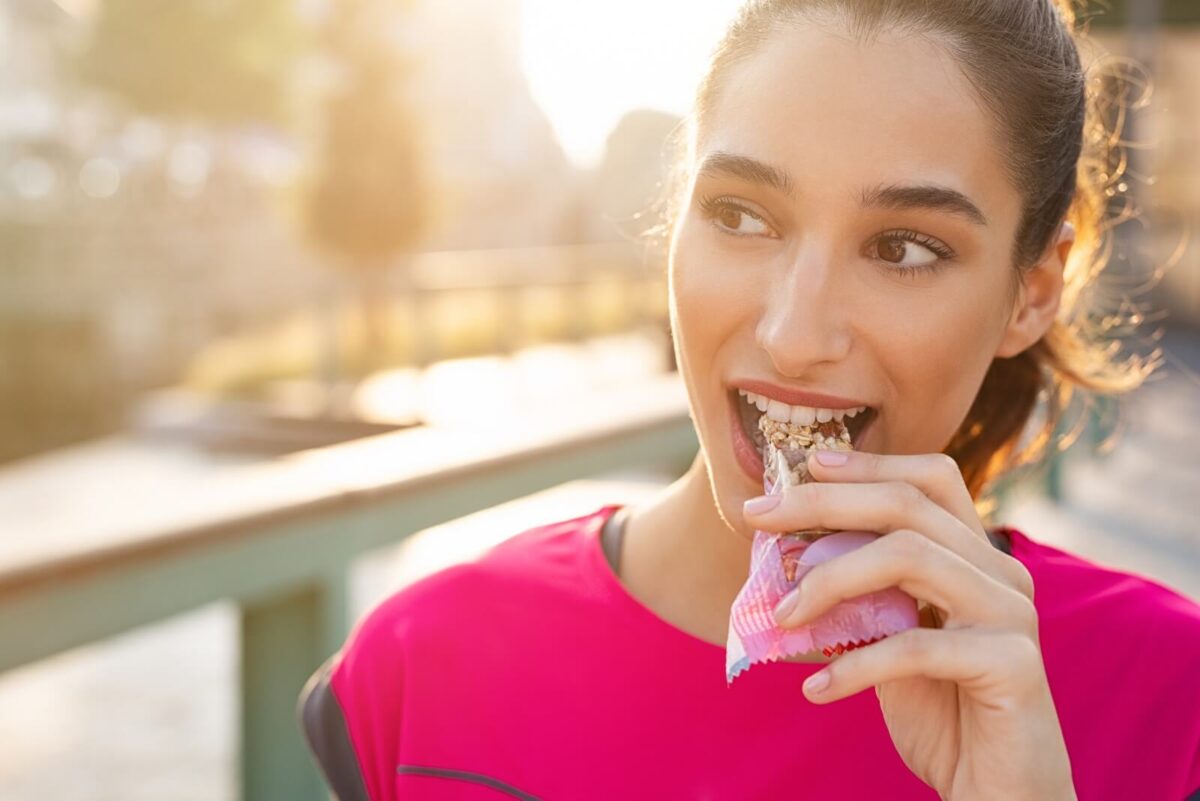Best Protein Bars for Weight Loss

Protein bars have become a staple in the diet of many individuals striving for weight loss.
Protein bars can help you lose weight by promoting satiety (aka making you feel full) and preventing unhealthy snacking throughout the day.
Choosing the right protein bar can make a significant difference in your weight loss journey, and this blog’s goal is to show you what to look for in protein bars and provide recommendations.
Considerations for Healthy Protein Bars
If you’re trying to lose weight, look for the following when selecting the best protein bars:
High Protein Content
The primary purpose of a protein bar is to provide a substantial amount of protein. Look for bars that contain at least 10 grams of protein per serving.
This protein content is sufficient to promote muscle growth and repair while helping you feel fuller longer, reducing the likelihood of snacking on high-calorie foods.
Examples of protein sources in found snack bars:
- Soy protein
- Whey protein isolate
- Brown rice protein
- Pea protein
- Pumpkin seed protein
High in Fiber
Fiber plays a crucial role in weight management by promoting satiety and supporting digestive health.
Look for protein bars that contain fiber-rich ingredients such as oats, nuts, seeds, or soluble fiber sources like chicory root fiber. Aim for bars with at least 3 grams of fiber per serving to aid in appetite control and digestion.
Low in Added Sugar and Carbs
While protein is essential, it’s crucial to keep an eye on the sugar and carbohydrate content of protein bars. Even nutrition bars that are marketed as healthy snacks may contain more sugar and carbs than you may think, so reading the Nutrition Facts label is a must.
Choose bars with minimal carbohydrates and added sugars. Instead, look for bars sweetened with natural sources like stevia or monk fruit.
Low Calorie Count
While protein bars make for a convenient snack, they shouldn’t be a calorie bomb. Avoid bars over 250 calories—those excess calories can derail your weight loss progress.
Limited Artificial Ingredients
Be mindful of artificial ingredients such as artificial sweeteners, colors, and preservatives. Opt for bars with natural ingredients and minimal additives.
Nutrient-Dense Additions
Many protein bars come fortified with additional vitamins and minerals. Consider bars that offer these extra benefits, as they can support overall health and well-being during your weight loss journey. However, ensure that the added nutrients align with your dietary needs and goals.
Best Protein Bars for Weight Loss
Not all protein bars are created equal, and that’s why we compiled a list of some of the best protein bars on the market:
Power Crunch Protein Bars
Power Crunch Protein Bars are great. They contain 13 grams of protein, taste great, and are like a light wafer cookie.
Fit Crunch Bars
Perfect for anyone with a sweet tooth, Fit Crunch Bars taste like candy bars—and they come with 16 grams of protein, guilt-free. Fit Crunch protein bars also come in two varieties: baked and wafer.
Quest Bars
Compared to the other brands, Quest Nutrition’s protein bars are higher in carbs but tend to have fewer calories per bar.
Take each brand’s chocolate peanut butter protein bars, for example:
- Power Crunch: 215 calories, 12g total carbohydrates
- Fit Crunch Wafer Protein Bar: 240 calories, 10g total carbohydrates
- Quest Protein Bar: 190 calories, 22g total carbohydrates
Additionally, Quest protein bars have 20 grams of protein — more than Power Crunch and Fit Crunch.
Conclusion
The next time you’re shopping in the snack bar aisle, keep an eye out for protein bar options that are high in protein and fiber; low in sugar, carbs, and calories; and include natural ingredients and vitamins and minerals.
For additional guidance, contact Lifelong Metabolic Center.


